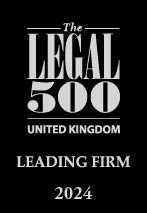- Nationals from the European Union (EU), Switzerland, Norway, Iceland or Liechtenstein who were resident in the UK before 31 December 2020
- Spouses or Civil partners who were married or in a civil partnership before 31 December 2020
- Durable partners where the relationship had been established before 31 December 2020
- Children, grand-children or great grand-children of an EU national or their partner
- Parent, grandparent or great-grandparent of an EU national or their partner
- Dependant relatives (assuming dependency was established before 31 December 2020 and has continued since then)
- Those qualifying for retained right of residence (through death, divorce or as a victim of domestic violence)
- Those qualifying through derivative rights
- Those with existing Zambrano rights to reside
EU Settlement Scheme

The EU Settlement Scheme (EUSS) was formally introduced in March 2019. It provides a mechanism through which nationals from the European Union (EU), Switzerland, Norway, Iceland or Liechtenstein, as well as their non-European family members, may apply for post-Brexit, UK immigration status.
The EUSS effectively replaced the EEA Directive on Free Movement and the Immigration (European Economic Area) Regulations 2016 which only remained valid until the UK left the EU on 31 December 2020.
The EUSS specifically caters for Europeans and their family members who were resident in the UK before 31 December 2020. EU nationals who arrived in the UK after this date, will be unable to regularise their stay through the EUSS, but will rather need to qualify for status under a different category of the UK immigration rules (i.e. as a partner, worker or student).
Those applying through the EU Settlement Scheme will either be granted pre-settled status if they have resided in the UK for less than 5 years or ‘settled status’ (Indefinite Leave to Remain or ILR) if they have been continuously resident in the UK for 5 years. Once an individual with pre-settled status has been resident in the UK for a continuous 5-year period, they will be able to apply to switch from pre-settled to for settled status.
For most applicants, the deadline to submit an initial application to the EU Settlement Scheme was 30 June 2021. This deadline does not apply to people who already hold EUSS pre-settled status, children born in the UK to individuals who already hold pre-settled status or to people who have successfully applied for an EUSS Family Permit and are joining family in the UK for the first time.
For those that missed the deadline to apply, provisions have been put in place to accept late applications. As time passes, however, justifying the reason for a late application is becoming much harder. For a late application to succeed, it is essential to demonstrate that there are ‘reasonable grounds’ for why the application is late and why it has not been submitted during the time since the end of the deadline. Where possible, evidence should be submitted to support the reasons for a later application.
If a person with pre-settled status spends more than 6 months outside of the UK in any 12-month period, then they may have broken their continuity of residency and therefore may not qualify for settled status. There are exceptions to this rule if the absences were due to a one-off ‘good’ reason or they were related the coronavirus pandemic.
Where an applicant is submitting either a later application or there has been a break in continuous residence, we strongly recommend taking good legal advice from an immigration solicitor. RLegal is a recommended firm by the Legal 500, we have been helping clients successfully obtain pre-settled and settled status under the EU Settlement Scheme since its introduction in 2019.
Why choose RLegal Solicitors?
RLegal immigration solicitors will guide you through the complex evidential requirements and assist you from start to finish with your EUSS application. We will not advise you to proceed with an application unless we are confident of success.
We are a specialist firm of immigration solicitors based in central London. Our clients are based throughout the UK and around the world. For those who wish to travel to our London offices, we are based in the West End of central London. If you are further afield, we can easily liaise with you by telephone, email and Zoom.
For more information, please contact us on +44 (0) 20 7038 3980 where you can talk to one of our team, email us at info@rlegal.com or complete our online enquiry form
Alternatively click on the links below for further information.
Applicants can be denied settled or pre-settled status if they do not satisfy ‘suitability’ tests, for example, if they have criminal convictions. If the applicant has a pending conviction or is under investigation, this will normally delay the processing of any application until the investigation has been completed or the court case has come to an end.
- Applicants may apply to the EU Settlement Scheme from within the UK through an online procedure.
- They will need to provide proof of identity and may have to provide biometrics.
- Only one application for pre-settled status may be submitted.
- Applicant’s may apply multiple times for settled status if their first application is unsuccessful and whilst they still hold pre-settled status.
- Applicants may travel outside of the UK whilst their application is being processed.
- Applicants living outside of the UK and who wish to join family members in the UK should apply online for an EUSS Family Permit before travelling to the UK.
Supporting evidence and automated checks
Where applicants provide a National Insurance number an automated check will be carried out with HMRC and the Department of Works and Pensions to establish whether the residence requirement has been met.
If the checks are conclusive settled status or pre-settled status will be granted.
vWhere the checks are inconclusive, evidence to cover the entire period of residence will need to be produced. Although the Home Office
If evidence of residency or relationship is not provided when it has been requested the application will be refused.
Those denied settled or pre-settled status will have the right of appeal to the First-tier Tribunal (Immigration and Asylum Chamber). If, however, your application is rejected as ‘invalid’ you will only be able to seek judicial review of the Home Office decision.
Once an applicant has EU Settled Status, they may be eligible to apply to naturalise as a British citizen if they meet the relevant criteria.
RLegal has successfully assisted EU nationals since 2002 in obtaining permission to stay in the UK.
Contact us
Interested in our services? Contact us and one of our solicitors will contact you

